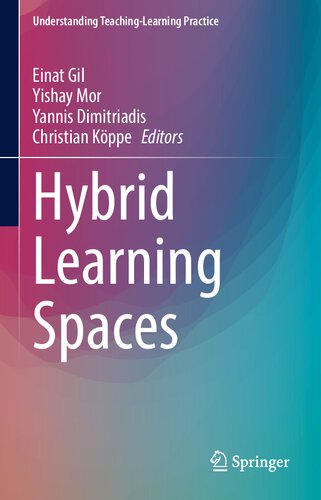

Most ebook files are in PDF format, so you can easily read them using various software such as Foxit Reader or directly on the Google Chrome browser.
Some ebook files are released by publishers in other formats such as .awz, .mobi, .epub, .fb2, etc. You may need to install specific software to read these formats on mobile/PC, such as Calibre.
Please read the tutorial at this link: https://ebookbell.com/faq
We offer FREE conversion to the popular formats you request; however, this may take some time. Therefore, right after payment, please email us, and we will try to provide the service as quickly as possible.
For some exceptional file formats or broken links (if any), please refrain from opening any disputes. Instead, email us first, and we will try to assist within a maximum of 6 hours.
EbookBell Team

4.8
24 reviewsAs we have come to accept the duality of physical and virtual learning spaces as a permanent feature of our educational landscape, we begin to question its validity. Is this really a dichotomy, or is it a continuum? Should this be the primary dimension around which we cluster educational experiences - how does it intersect and interact with other axes, such as formal-informal, vocational-recreational, open-closed, teacher-student? How do we adapt, as teachers, learners, designers, policy makers, to this changing landscape? How do we shape it to offer an optimal learning experience? Such questions led us to conduct a series of academic and professional events on the theme of Hybrid Learning Spaces (HLS) - spaces which challenge and defy the dichotomies above. This edited book collates some of the products of that endeavor, offering a multi-vocal, interdisciplinary approach to hybridity in education. It connects practical examples, design directives and theoretical analysis, combining perspectives from technology research and development, educational theory and practice, architecture and space and product design. This book addresses researchers, practitioners, innovators and policy makers in education, technology and design, offering broad perspectives and then distilling practical insights in the form of design principles and patterns, pedagogical models, and predictions of future trends.